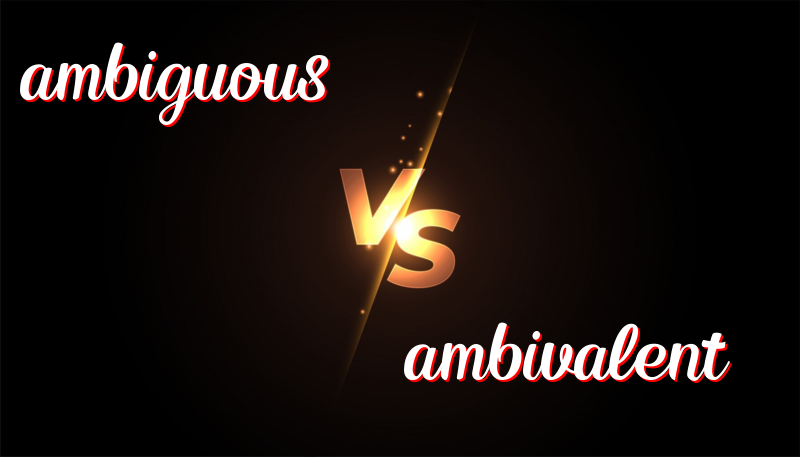英語單詞ambiguous 與 ambivalent的區別
November 05, 2024
模糊(Ambiguous)與矛盾(Ambivalent)的差異
在學習英文詞彙的過程中,我們常會遇到一些看似相似但意思截然不同的單字,如「ambiguous」與「ambivalent」。這篇文章將詳細介紹這兩個詞的歷史、用法,以及如何分辨它們。
詞源歷史
- Ambiguous:「Ambiguous」源自拉丁語「ambiguus」,意思是「引起不確定的或可解釋為多種方式的」。這個詞通常用來描述句子、情況或事物本身,指它們含有不止一種意思。
- Ambivalent:「Ambivalent」源自法語,其中「ambi-」意指「雙」,「valent」意指「價值或力量」。這個詞用來描述人對某事或某人有相反的感受或態度,因此具有雙重(或矛盾的)情感。
用法
Ambiguous:當一個概念、陳述或描述含有不止一種可能性的解釋時,我們稱之為「ambiguous」,通常讓人感到困惑或不確定。
Ambivalent:用來描述個人在面對某事或某人時同時存在兩種相反的感受或態度,這讓他們感到不知所措或舉棋不定。
如何分辨
- 「Ambiguous」指的是外在表達上的不明確或多義性,而「ambivalent」是內在心理上的矛盾感受。
- 你可以記住「ambiguous」跟「clarity」相對,而「ambivalent」則與「certainty」相對。
Ambiguous 的用法範例
- The sign was ambiguous and confused many drivers.
(這個標誌是模糊的,讓許多駕駛感到困惑。) - His response was ambiguous and hard to interpret.
(他的回應是模糊不清的,很難解讀。) - The rules were ambiguous, leading to multiple interpretations.
(規則是模糊的,導致多種解釋方式。) - This sentence is ambiguous because it can be understood in two ways.
(這句話是模糊的,因為可以有兩種理解方式。) - The wording in the contract was ambiguous, causing disputes.
(合同中的措辭是模糊的,導致爭議。)
Ambivalent 的用法範例
- She felt ambivalent about moving to a new city.
(她對於搬到一個新城市感到情感矛盾。) - He has an ambivalent attitude towards his job.
(他對他的工作有矛盾的態度。) - Her feelings about the plan are ambivalent.
(她對這個計劃的感受是矛盾的。) - Many teenagers are ambivalent about making future plans.
(很多青少年對於制定未來計劃感到矛盾。) - He seems ambivalent about whether to accept the offer.
(他似乎對於是否接受這個提議很矛盾。)
總結
總結來說,「ambiguous」用來描述那些因為多種解釋而產生的不確定性,而「ambivalent」則用來描述人們對同一事物具有矛盾的情感或態度。理解這兩個詞的差異,能使我們在溝通時表達得更加精確。

Leave a Reply
You must be logged in to post a comment.